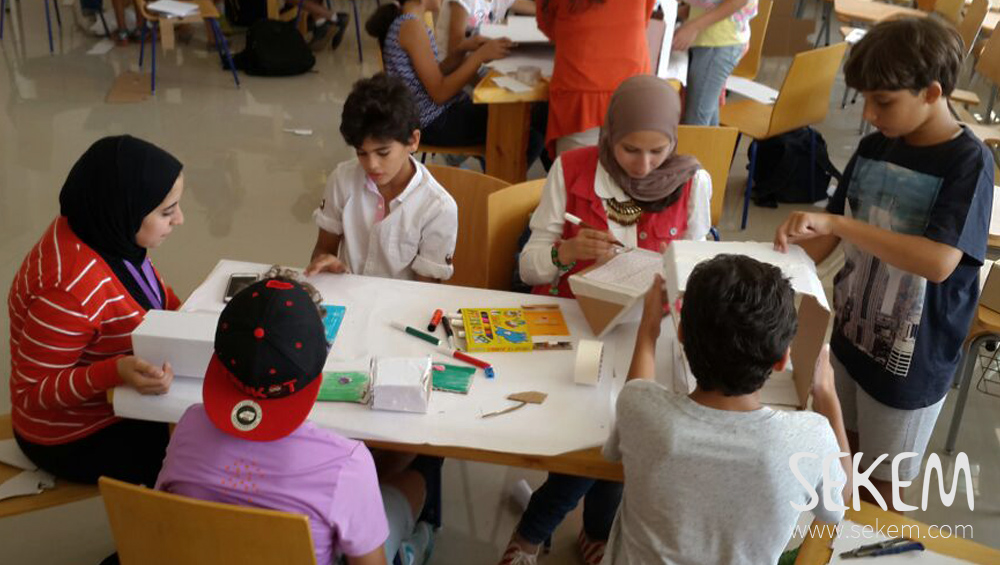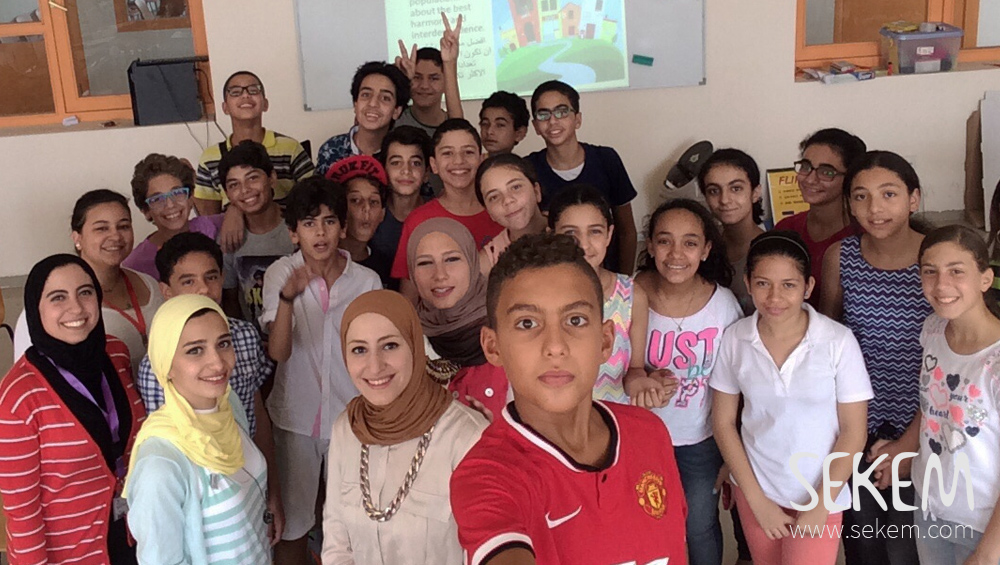For more than 30 years, SEKEM has been recognizing the importance of education as a foundation for all development. While everyone needs housing, food, and has a right to basic sources of material wellbeing, it is with education that all this starts. Education allows progress to happen and people to prosper. Material wellbeing rests on education.
Still, in Egypt, education is largely limited to memorizing facts without giving the students the chance to develop essential skills of critical though and require experimentation with nature and the communication of their results. The education system is not yet tailored to helping children find their true areas of interest and uncover their talents. Many students therefore feel strongly influenced by the expectation of their parents, putting them under pressure to strive for goals which are not theirs.
Strengthening skills
The challenge is to boost the interest of children in different disciplines including science, technology, humanities, and arts from the earliest age possible and to demonstrate to young generations how their knowledge and skills overlap and interlock with others and how could learning in one area strengthen skills in another. Children should be able to explore their interests based on understanding the different disciplines. They should understand that thriving societies do not need only “engineers” or “doctors” but also “bankers”, “teachers”, “musicians” etc.
That is the goal of the Children’s University. The first project founded under this term was the “Kinder-Uni” in Tübingen (Germany) in 2002. In the beginning of the “Kinder Uni”, there was the idea of bringing children and professors together. Today, the project has evolved into something much bigger and even global. This year, the first Children’s University started at the Heliopolis University for Sustainable Development.

It addresses children from the ages of 6 to 18 in four different levels. Through the involvement of school teachers and educators in the initiative, their teaching skills and knowledge will be developed systematically and they are mentored by university professors and other national and international experts. The Children’s University also enriches the aspirations of university professors in terms of social inclusion through involvement with children in various activities. The program also recognized the important role of parents and caretakers as supporters and influencers. Parents will have the chance to be involved with their children at all stages of the program and to celebrate with them at an annual event.
Asking questions, defining problems, finding solutions
The program at the Heliopolis University, that has started this year, focuses on the areas of the Natural Sciences, Arts and Humanities, and a number of selected Special Areas. The idea is to familiarize children with the basic tasks of asking questions and defining problems, understand the use of models in science, planning and carrying out investigations, constructing explanations and designing solutions and much more.
Roughly 60 children in each of the 3 levels participate in 10 different activities selected from 9 thematic areas at the institution. Each of these include 18 activities: 6 to be implemented in the summer, 6 in the first academic semester in 6 weekends and 6 in the second academic semester in 6 weekends. Each professor will work with each group for 1 day in the summer and 1 day in each semester.
SEKEM will report on the outcomes of the first Children’s University at the end of this year’s academic cycle.
More pictures of the Children's University
Read about SEKEMs Vocational Training Center Opening its Doors to Students

